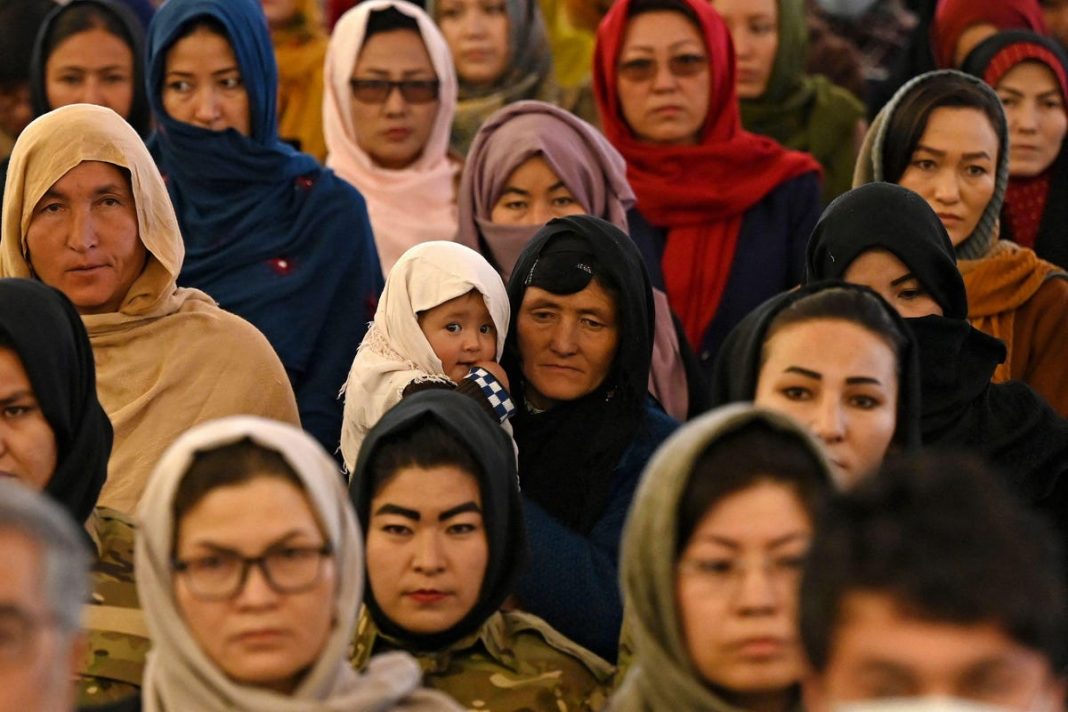A Hazara woman (C) holds her child as she with others attend an event on International Women’s Day … [+]
AFP via Getty Images
Afghanistan comes last in the world’s global report on women, peace, and Security, according to a new report published by Georgetown University’s Institute for Women, Peace, and Security.
While the global situation of women has gotten better over the past two years, the Covid-19 pandemic has disproportionately taken a toll on women and girls around the world.
In Afghanistan, the takeover of the country by the Taliban has made the already dire situation worst. “Afghanistan has fallen to last place out of 170 countries,” Jeni Klugman, Managing Director, Georgetown Institute for Women, Peace, and Security, said on Tuesday at an online event launching the 2021-2022 report. “The country’s absolute score is almost 30 percent lower than in 2017, driven by worsening rates of violence and worsening community safety.” The report also expects “future data to show that the Taliban takeover of Afghanistan in August has only exacerbated these conditions.”
“What makes the findings of this index more worrisome than ever before is that with the return of the television, many expect for these indicators mentioned in the index further deteriorate,“ Mariam Safi, the Founding Director of the Organization for Policy and Research Studies (DROPS), said about the situation in Afghanistan. In the 2019-2020 report, Afghanistan came second-to-last.
The report portrays a wide range of local realities in Afghanistan, with, for example, the perception of wife-beating being tolerated by 97 percent of men in the province of Paktia, a largely rural area of the country while in Daykundi, a central province, the approval is much lower, at 15 percent.
The report looks at factors such as inclusion, justice, and security, in order to evaluate how women are faring in 170 countries around the world. The highest-ranked country this year is Norway, followed by Finland and Iceland. Among the 12 last ones, 11 are fragile states, with the exception of Pakistan, ranking 167.
Mona Juul, Norway’s ambassador to the United Nations, attended the launch of this year’s report. She said: “while the Nordic countries feature at the top of the index, we are not perfect. In every society, there are those who experience unequal treatment and exclusion. It is imperative that we recognize this, it helps us to look forward to addressing gaps, especially structural ones to achieve achieving gender equality.”
The positive news of the report is that the global score has increased by about 9 percent since 2017, when the first report on the matter was published by Georgetown, and 90 countries have advanced by around 5 percent. The drivers for these improvements are diverse, but, according to Klugman: “ I’d highlight the expansion of cellphone use, which has risen in 115 countries, and women’s perception of community safety has also generally improved.”




